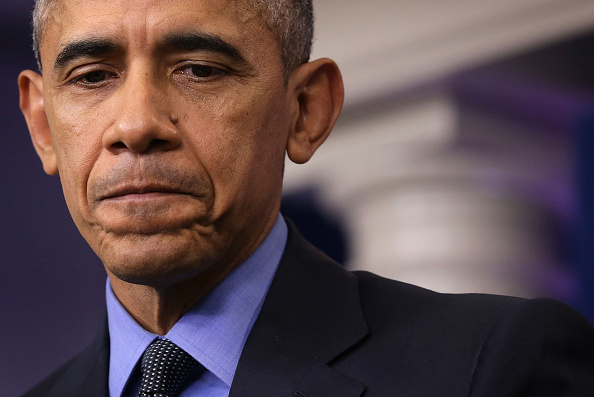Did Obama 'torture some folks'?


A free daily email with the biggest news stories of the day – and the best features from TheWeek.com
You are now subscribed
Your newsletter sign-up was successful
"In the immediate aftermath of 9/11," President Obama said during the process of declassifying the Senate's shocking report on Bush-era CIA torture, "we did some things that were wrong. We did a lot of things that were right, but we tortured some folks." Obama was adamant in his condemnation of torture both before and after he took office, and he made ending American use of torture a major campaign promise.
Now, documents obtained by BuzzFeed News suggest Obama himself may have "tortured some folks" during his presidency. The pages, released through a Freedom of Information Act request, reveal that during Obama's tenure, U.S. interrogators have used a number of techniques that at least border on torture, according to human rights advocates, if not outright cross the line.
Those tactics include "separation," which is considered solitary confinement under a new name, as well as sleep deprivation and a technique called "Fear Up," in which the interrogator "identifies a preexisting fear or creates a fear within the source" and then suggests that fear will cease if the suspect talks.
The Week
Escape your echo chamber. Get the facts behind the news, plus analysis from multiple perspectives.

Sign up for The Week's Free Newsletters
From our morning news briefing to a weekly Good News Newsletter, get the best of The Week delivered directly to your inbox.
From our morning news briefing to a weekly Good News Newsletter, get the best of The Week delivered directly to your inbox.
One document obtained also alleged about 300 cases of more serious detainee abuse in Afghanistan by U.S. troops and spies in 2011 and 2012. "Detainees said they were threatened with death, attack dogs, and rape, or their families' lives were threatened," with one detainee claiming "he was beaten and forced to sign a confession he didn't make." The Department of Defense declined to comment to BuzzFeed News about these allegations.
A free daily email with the biggest news stories of the day – and the best features from TheWeek.com
Bonnie Kristian was a deputy editor and acting editor-in-chief of TheWeek.com. She is a columnist at Christianity Today and author of Untrustworthy: The Knowledge Crisis Breaking Our Brains, Polluting Our Politics, and Corrupting Christian Community (forthcoming 2022) and A Flexible Faith: Rethinking What It Means to Follow Jesus Today (2018). Her writing has also appeared at Time Magazine, CNN, USA Today, Newsweek, the Los Angeles Times, and The American Conservative, among other outlets.
